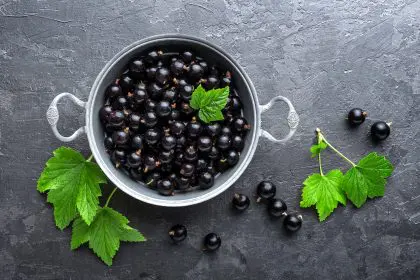For six years, the Mediterranean diet has claimed the top spot in the U.S. News Diet Rankings, and its reign shows no signs of stopping. It’s not just about what’s on the plate; this diet embraces a holistic lifestyle rooted in balance, community, and the simple pleasures of food. In 2025, health professionals forecast that the Mediterranean way of eating will continue to dominate the nutrition landscape, thanks to its proven health benefits and approachable guidelines.
What sets the Mediterranean diet apart
This eating pattern draws inspiration from the traditional cuisines of Mediterranean countries, particularly from the mid-20th century. It emphasizes whole, nutrient-dense foods, including:
- Fresh fruits and vegetables
- Whole grains
- Legumes and pulses
- Nuts and seeds
- Extra virgin olive oil
- Fish and moderate amounts of poultry
- Dairy, particularly yogurt and natural cheeses
While it limits red and processed meats, sugar, and heavily processed foods, it also encourages mindful consumption of wine, typically during meals. However, experts caution against starting alcohol consumption solely for health benefits.
The science behind its health benefits
Registered dietitians and researchers consistently highlight the Mediterranean diet’s impressive impact on overall health. It’s not just one food or nutrient that makes it beneficial, but rather the synergistic effect of the entire dietary pattern. Key health benefits include:
- Supporting heart health by lowering bad cholesterol and improving blood pressure
- Reducing the risk and complications of diabetes through better blood sugar control
- Offering protective effects against various types of cancer
- Lowering inflammation levels in the body, which can prevent chronic disease
- Promoting cognitive function and reducing the risk of neurodegenerative diseases
- Increasing longevity by fostering healthier aging
The building blocks of a heart-healthy diet
Fiber-rich foods
The Mediterranean diet’s plant-based emphasis means it’s packed with fiber, which aids digestion, helps manage weight, and supports healthy cholesterol levels. Fiber also plays a crucial role in balancing blood sugar and promoting overall gut health.
Minimizing red and processed meats
Red and processed meats have been linked to higher risks of heart disease and cancer. By focusing on plant-based proteins, fish, and lean poultry, the Mediterranean diet naturally limits these risks.
Embracing fish and omega-3s
Fatty fish like salmon, mackerel, and sardines are staples of this diet, providing essential omega-3 fatty acids. These nutrients reduce inflammation, support brain health, and lower the risk of cardiovascular diseases.
Extra virgin olive oil
Olive oil, particularly in its extra virgin form, is a cornerstone of the Mediterranean diet. It’s rich in antioxidants and healthy monounsaturated fats that protect against heart disease and inflammation. Research, including findings from the PREDIMED trial, underscores its role in significantly reducing cardiovascular risks.
Nuts, seeds, and healthy fats
Almonds, walnuts, and seeds like flaxseeds and chia are key components, offering plant-based proteins and essential fats. These foods enhance heart health, reduce inflammation, and may even support cognitive function.
Colorful fruits and vegetables
The vibrant array of produce in the Mediterranean diet provides antioxidants and phytonutrients that combat oxidative stress and inflammation. From leafy greens to berries and tomatoes, these foods are nutritional powerhouses.
More than a diet
Unlike restrictive diets that focus on calorie counting or food elimination, the Mediterranean diet encourages a joyful approach to eating. It’s about savoring meals, often shared with loved ones, and embracing physical activity and relaxation. These lifestyle elements foster a healthier relationship with food and promote mental well-being.
Simple steps to adopt the Mediterranean diet
Transitioning to this way of eating doesn’t require drastic changes. Start with small, manageable adjustments:
- Add more fruits, vegetables, legumes, and whole grains to your meals.
- Swap refined grains for whole options like quinoa, farro, or whole-wheat pasta.
- Incorporate fish into your weekly meals, aiming for at least two servings.
- Use olive oil as your primary cooking fat and drizzle it on salads and vegetables.
- Snack on nuts and seeds, but watch portion sizes for calorie control.
- Make half your plate fruits and vegetables for balanced meals.
Alternative diets with Mediterranean roots
If the Mediterranean diet appeals to you, several similar dietary patterns offer comparable health benefits:
- DASH diet: Designed to lower blood pressure, this diet focuses on nutrient-dense foods and limits sodium.
- Nordic diet: Emphasizes local, seasonal foods, including fish, root vegetables, and whole grains.
- MIND diet: A hybrid of the Mediterranean and DASH diets, it targets brain health and cognitive function.
- Anti-inflammatory diet: Centers on foods that reduce inflammation, such as leafy greens, berries, and healthy fats.
- Okinawan diet: Features a plant-based approach with moderate amounts of seafood and minimal processed foods.
Embracing a Mediterranean lifestyle
The Mediterranean diet continues to captivate health professionals and the public alike for good reason—it’s sustainable, delicious, and incredibly beneficial for long-term health. By focusing on whole foods, enjoying meals with loved ones, and staying physically active, this lifestyle promotes a holistic sense of well-being.
Whether you’re seeking heart health, weight management, or simply a more mindful way of eating, the Mediterranean diet offers a flexible, balanced approach that’s easy to maintain. Start with small changes and embrace the journey towards a healthier, more vibrant life.

















